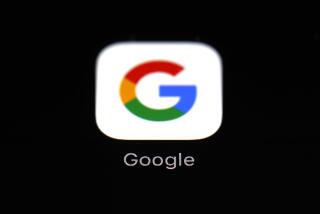Court to Rule on Congress Access to Secret Data
- Share via
WASHINGTON — The Supreme Court agreed today to consider reviving an attempt by Congress to limit the President’s authority to withhold classified information from the nation’s legislative branch.
The court said it will review a ruling that invalidated a law aimed at giving Congress more access to national security information.
A federal judge had ruled that the law violates the required separation of legislative and executive powers.
Directive Adopted in ’83
The clash between Congress and the President over classified information is a longstanding one. But the case acted on today has more recent origins, stemming from a national security directive adopted by President Reagan in 1983.
The directive requires federal officials, before they are allowed access to classified information, to sign an agreement that they will not disclose the information.
The directive also established a standard form for officials to sign, promising that they never will divulge classified or “classifiable” information without written permission from proper authorities.
Some members of Congress bridled at the directive, particularly the use of the word “classifiable.”
Free-Speech Restriction
They said the presidential order restricts the free-speech rights of federal employees and “allows after-the-fact classification of information in order to punish whistle blowers for making disclosures that embarrass their superiors.”
Congress then enacted legislation prohibiting use of funds during the 1987-88 fiscal year to implement the standard forms that Reagan had authorized.
U.S. District Judge Oliver Gasch declared the legislation unconstitutional last May.
In other action today, the court:
--Agreed to decide whether states must continue to provide lawyers for indigent Death Row inmates after they have lost their initial round of appeals.
--Killed a lawsuit against the government stemming from the World War II mass detention of Japanese-Americans in U.S. prison camps.
More to Read
Sign up for Essential California
The most important California stories and recommendations in your inbox every morning.
You may occasionally receive promotional content from the Los Angeles Times.










